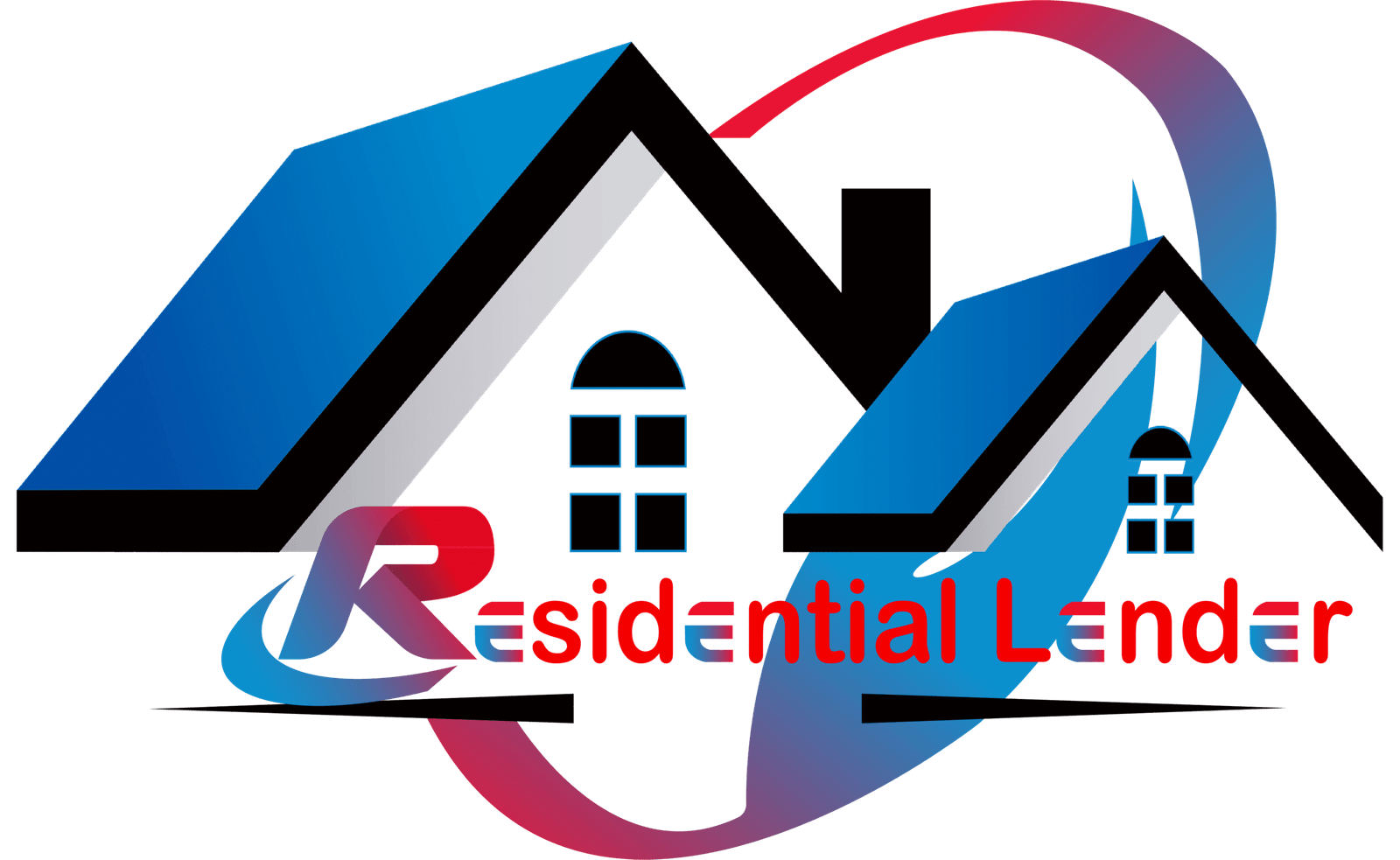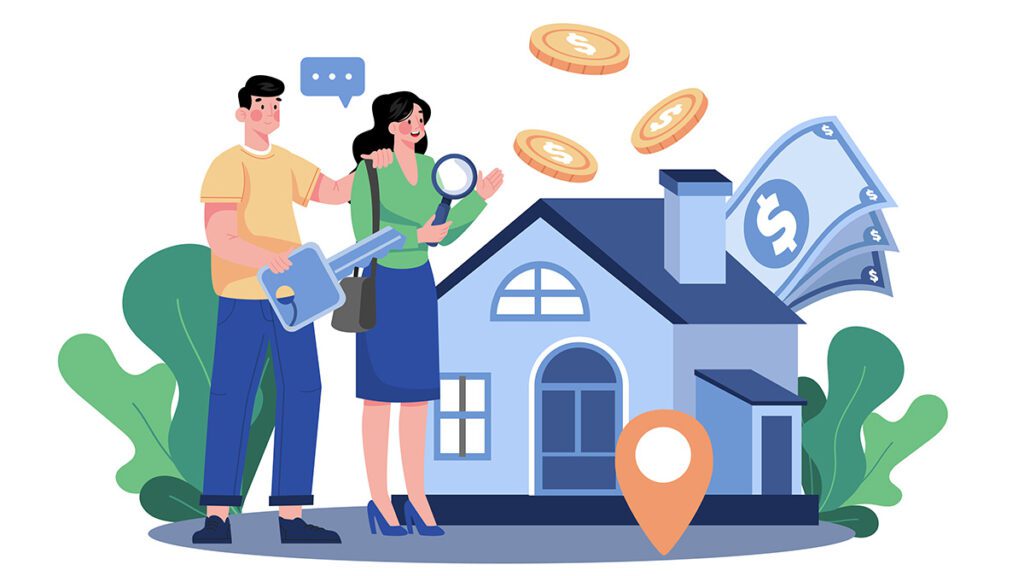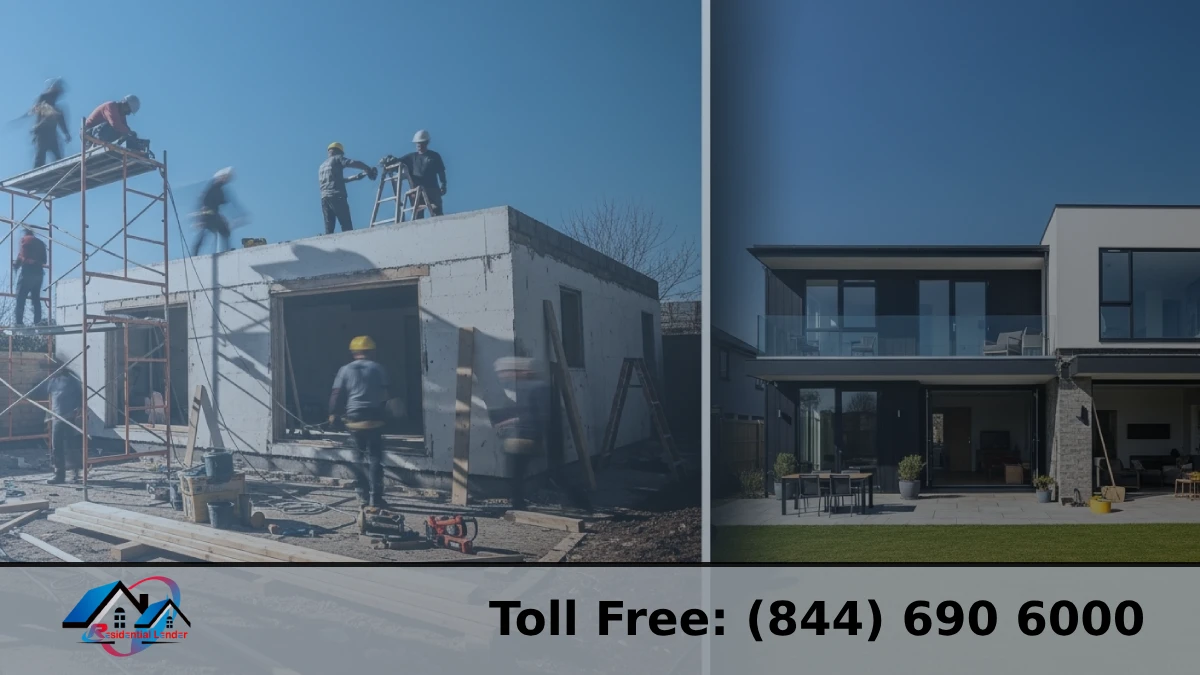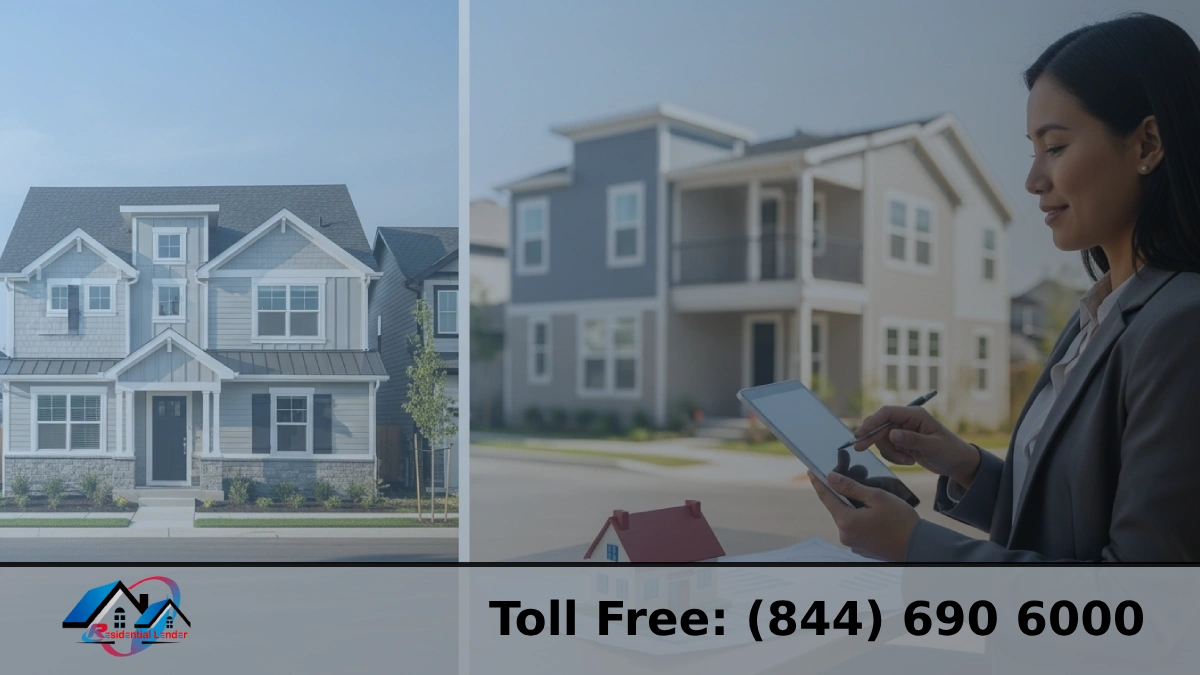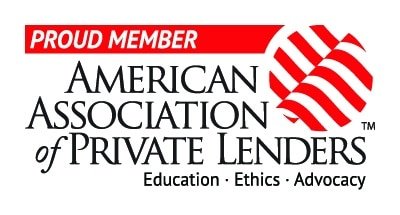The smell of freshly baked apple pie, the sound of kids laughing in the garden, and the feeling of finally putting down roots are all things that make up the American Dream. For many people, this dream is tied to owning a house. A home gives you security, a sense of success, and a real investment in the future. But even for experienced savers, it can be hard to figure out how to get a home loan because of all the different terms and conditions. This blog post, “Residential Loans: Your Pathway to Homeownership,” will help you understand the process better so you can make smart choices as you start this exciting journey. We’ll talk about the different kinds of loans, credit scores, and down payment requirements and give you helpful tips on how to apply for a mortgage. “Residential Loans: Your Pathway to Homeownership” will be your trusted guide as you make your dream of homeownership come true, whether you’re buying your first home or looking to renew.
What are Residential Loans?
Residential loans are financial tools that can help people buy or refinance a home. Because they are backed by property, the loan can be returned if the borrower doesn’t pay.
Common types of residential loans include:
Conventional Loans: These loans are not backed by the government, and you usually need a better credit score and a down payment.
FHA loans: The Federal Housing Administration backs FHA loans with less strict credit standards and lower down payments. Thus, they are a good choice for people buying their first home.
USDA loans are backed by the US Department of Agriculture and are meant to help people with low to moderate incomes buy homes in rural places.
Understanding Your Eligibility for a Residential Loan
The Loan Application Process
To get a home loan, you must do a few essential things, like gather your financial papers, fill out loan applications, and go through credit checks and property appraisals. Knowing what to do to be eligible is essential at every step. With this information, you can make wise choices, speed up the application process, and raise your chances of getting a good loan.
Credit Score
Your credit score is a big part of whether you can get a loan and what interest rate you’ll be offered. Lenders look at your credit score to decide if they want to lend you money by looking at how well you’ve paid back loans in the past. Better loan terms, like lower interest rates and better loan-to-value ratios, often come with a higher credit score.
Here are some ways to raise your credit score:
On-time bill payment: A good credit history is built on making payments on time and repeatedly.
Keep your credit card amounts low by: A high rate of credit abuse can hurt your score.
Cut down on new credit requests: Your score can decrease with each question.
Report any mistakes: Check your credit reports often and challenge any errors.
Think about getting a credit builder loan. These loans can help you build or fix your credit history.
Income and Debt-to-Income Ratio (DTI)
Your income and debt-to-income ratio (DTI) are crucial in determining whether you can afford a loan. DTI tells you how much of your gross monthly income goes toward paying off your debts, like credit cards, school loans, and car loans. Lenders carefully examine your DTI to see if you can afford your monthly mortgage payment and other debts.
Instructions on how to figure out DTI
Add up all the amounts you make each month.
Divide the total amount you pay each month by your gross monthly income.
To get your DTI rate, multiply the answer by 100.
A lower DTI can help you get better interest rates and increase your chances of getting a loan. To lower your DTI, you can make more money, negotiate lower interest rates on your current debts, or combine high-interest debt into one payment.
Down Payment
When you buy a house, you make a lump-sum down payment, usually between 3% and 20% of the price. A higher down payment can significantly affect your loan amount, the interest rate, and the total cost of borrowing.
Lower loan amount: If you make a more significant down payment, you may not need to borrow as much, so your monthly payments may be lower.
Lower interest rates: Borrowers who make more significant down payments usually get lower interest rates from lenders.
The loan-to-value ratio improved: Your loan-to-value (LTV) ratio will improve if you make a more significant down payment. This will affect which loan programs you can use and what insurance you need.
Several programs can help qualified people with their down payments so they can make the first investment in a home. These programs can lower out-of-pocket costs by giving grants, rebates, or other financial aid forms.
By carefully considering these factors and stabilizing your credit score and finances, you can improve your chances of getting a home loan that fits your needs and helps you achieve your goal of owning a home.
Exploring Residential Loan Options
Conventional Loans
Conventional loans are popular choices for qualified borrowers. The government does not back or cover these loans; instead, they are usually given by private lenders such as banks, credit unions, and mortgage companies.
Read More: Rental Portfolio Loans
Conforming vs. Non-Conforming Conventional Loans
This type of loan follows the limits set by Fannie Mae and Freddie Mac, the US’s two biggest secondary mortgage markets. Loans that are more significant than these limits are not suitable.
Because they pose less risk, loans are usually easier to get and have lower interest rates.
Non-Conforming Loans: These loans, often called “jumbo loans,” are for people who want to buy expensive homes. They usually require larger down payments and better credit.
Government-Insured Loans
Government-insured loans offer various benefits, such as lower payment requirements and more flexible credit guidelines, making homeownership more accessible for specific borrowers.
FHA Loans
These loans, backed by the Federal Housing Administration (FHA), are meant to help people buy their first home or with bad credit.
You need a lower credit score than a traditional loan to be eligible.
Benefits: Down payments are lower (3.5%), and the application requirements are less strict.
Loan limits are different in each town and change every year.
USDA Loans
The United States Department of Agriculture (USDA) backs these loans, which are intended to help people in rural areas buy homes.
Eligibility: You must meet standards for income and property location.
Benefits: You can get 100% financing, and people with low to middling incomes may get lower interest rates.
Loan limits are different in each town and change every year.
This summary gives you a general idea of the different types of home loans you can get. It’s essential to research and compare various loan plans to find the one that best fits your needs and goals for homeownership.
Choosing the Right Loan for You
Factors to Consider When Choosing a Loan
To choose the right home loan, you need to think about a few essential things carefully:
Interest Rate: A key factor in figuring out how much it generally costs to borrow money.
Loan Term: The length of time you have to repay the loan.
Down payment: The amount you pay upfront to cover the cost of the item you want to buy.
Closing costs are the fees that come with completing the loan.
Payment Every Month: You’ll pay monthly to cover the capital and interest.
Interest Rates
Interest rates affect the total cost of borrowing. You’ll pay more over the loan’s life when the interest rate is high.
Interest rates are affected by things like
Credit Score: Usually, you can get lower interest rates if your credit score is good.
Type of Loan: Interest rates range for different kinds of loans.
Market Conditions: Changes in interest rates are caused by economic changes.
Loan Term
The loan term tells you how long you must repay the loan. Standard terms are 15, 20, and 30 years.
Shorter terms mean higher monthly payments but lower overall interest costs because less interest is added.
Longer terms mean lower monthly payments but more interest over the life of the loan.
Closing Costs
Closing costs are the different fees that come with finishing the loan deal. Some of these are:
Loan application fees are fees that the lender charges to process the loan.
Fees for figuring out how much a place is worth.
Title insurance protects the lender and the renter from claims about the property’s title.
Attorney fees: For help with the loan-related legal work.
It is possible to find the best rates by looking for lenders and comparing figures of closing costs.
Monthly Payments
When picking a loan, affordability is critical. Carefully figure out your PITI, which stands for principal, interest, property taxes, and insurance, which is your monthly mortgage payment.
You can use online mortgage calculators to get an idea of how much your monthly payments will be for different loan options. This information will help you make a budget that works with your money.
If you carefully consider these factors and compare loan options, you can make an informed choice that fits your financial goals and long-term financial stability.
Finding the Right Lender
Choosing the right company is crucial for getting a good loan and completing the mortgage process quickly. Working with a reputable lender will ensure open communication, expert advice, and support as you become a renter.
Consider looking into credit brokers like ResidentialLender.Net. Mortgage agents work with many lenders and compare rates and terms to help you get the best loan for your needs. They can also help you fill out the application and answer any questions. Use the Internet to compare mortgage lenders, look for the best mortgage rates, and read reviews of lenders to get helpful information before making a choice.
The Importance of Pre-Approval
Getting pre-approved for a mortgage has a lot of significant benefits when it comes to getting a home.
Confidence in Your Budget: Pre-approval clearly states your spending limit, so you can keep your home search within your budget and avoid falling in love with a house you can’t afford.
Competitive Edge: Sellers are more likely to choose pre-approved buyers because this shows that you can afford the home and are serious about buying it. This is especially important in markets with many competitors and deals.
Streamlined Application Process: If pre-approved, your financial information is quickly reviewed. Once you’ve found your dream home, this can speed up the loan application process.
Power in negotiations: Getting pre-approval strengthens your negotiating stance. If sellers know you can afford the house and are a qualified buyer, they may be more likely to accept your offer.
By getting pre-approved, you can quickly complete the home-buying process and improve your chances of a smooth and successful transaction.
Tips for First-Time Homebuyers
It can be hard to figure out how to buy a house for the first time. Here are some essential things to remember:
Sign up beforehand: Get pre-approved for a loan to determine your borrowing limit and speed up the home-searching process.
Save for a Down Payment: You should start saving hard for a down payment. A down payment of any size can significantly affect your loan eligibility and monthly payments.
Your credit score will increase if you pay your bills on time, keep your credit card balances low, and avoid applying for too much new credit.
Hire a real estate agent: A good real estate agent can help you through the process of buying a home, from looking for properties to negotiating the deal and finishing the deal.
Payment Assistance Programs
The government and non-profits offer programs that help with down payments and other financial benefits to simplify homeownership.
Down Payment Assistance Programs: These can help with the down payment by providing funds, subsidies, or forgiven loans.
First-time homebuyer funds: Some programs offer funds to help with closing costs and other costs associated with becoming a homeowner.
Affordable Housing Programs: These programs may offer low-cost housing options or help people pay their rent to buy homes eventually.
First-time buyers can make buying a home much more affordable by researching available programs and eligibility standards.
Conclusion
Excellent work! By learning about residential loans, you’ve taken a big step toward becoming a renter. This blog has taught you a lot about the different kinds of loans available, essential things to consider when picking a loan, and the benefits of getting pre-approved.
Knowing about residential loans gives you the power to make wise choices when getting a home. You can get a loan that fits your needs and puts you on the path to long-term financial stability if you carefully look at your finances, compare loan choices, and work with a reputable lender.
Don’t go through the home loan process by yourself! The team at ResidentialLender.Net is here to help you every step of the way. Our mortgage experts have years of experience and are committed to helping you find the best loan option and ensuring your home-buying experience goes smoothly.
Call us right now to get a free appointment! Discuss your financial goals and consider the different loan choices that work best for you.
Future of Homeownership
The rules for becoming a homeowner are constantly changing. New technologies are making the mortgage process easier to understand and faster for people who want to get one. Online platforms make it easy to compare loans, keep track of documents, and talk to lenders.
Buying a home should become easier to understand and use as technology improves. However, responsible spending and careful financial planning will still be the most important aspects to remember if you want to be a homeowner for a long time.
We hope that this blog has helped you on your way to becoming a landlord. Remember that knowledge is power, and getting the right help and information can help you realize your dream of owning a home.
FAQs
What is a pre-qualification, and how does it differ from pre-approval?
Your financial information is reviewed less officially for pre-qualification, which gives you a rough idea of how much you can borrow. Your finances and credit records are examined in more detail for pre-approval, which provides a more accurate and strong indication of your loan eligibility.
What are some everyday closing cost items I should be aware of?
Typical closing costs include loan origination fees, appraisal fees, title insurance, legal fees, property taxes, and homeowners insurance.
Can I get a mortgage with bad credit?
Even though having good credit makes it easier to get loans and lowers your interest rates, getting a mortgage may still be possible even if your credit isn’t perfect. Some options, like FHA loans, may have less strict credit standards. Still, you might have to deal with higher interest rates or more stringent requirements to apply.
What is a good debt-to-income ratio for a mortgage?
A DTI ratio below 43% is usually what lenders want. Still, it can change based on the lender and your financial situation. A lower DTI can help you get better interest rates and increase your chances of getting a loan.
How long does it typically take to get a mortgage?
Different factors, such as your credit background, the loan’s complexity, and the state of the market, can affect the time it takes to apply for a mortgage. Closing on a mortgage can take 30 to 60 days.
